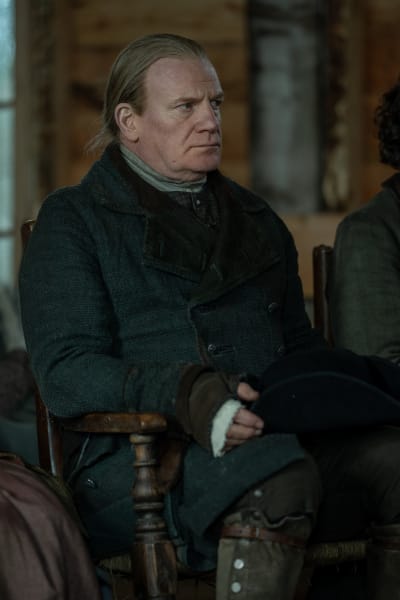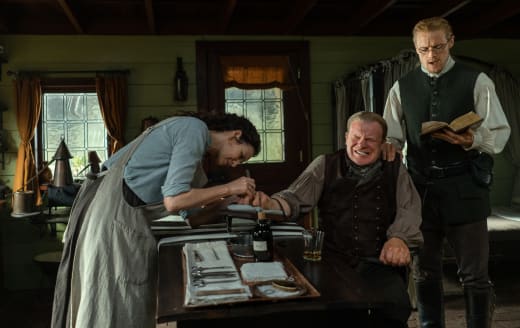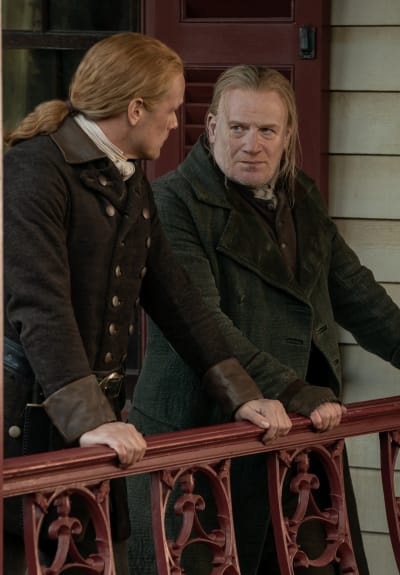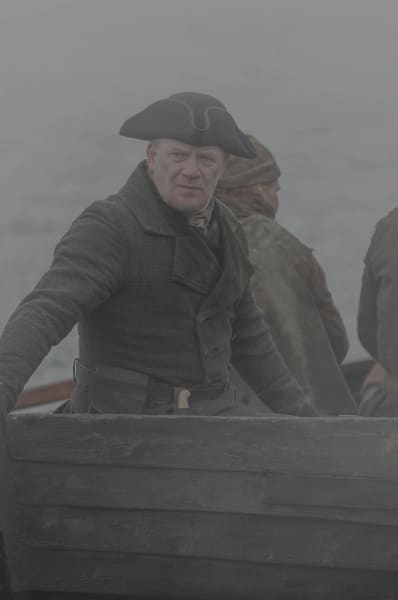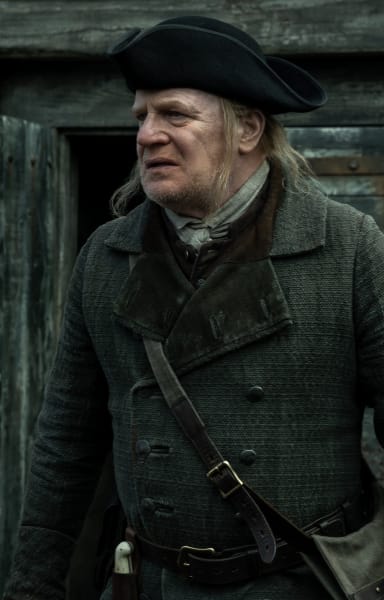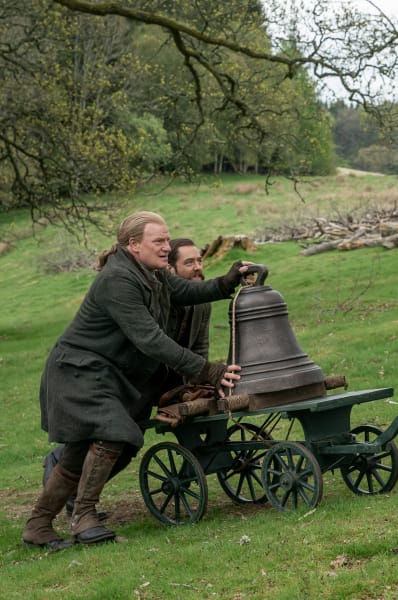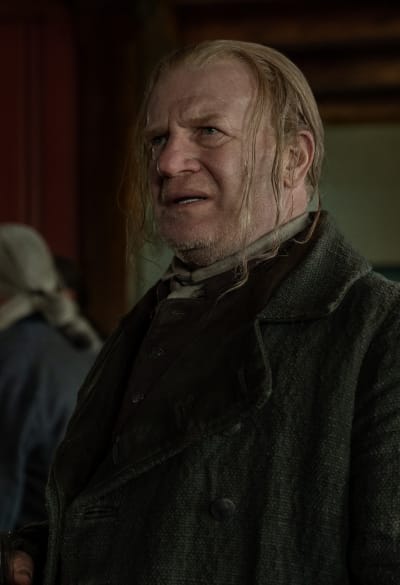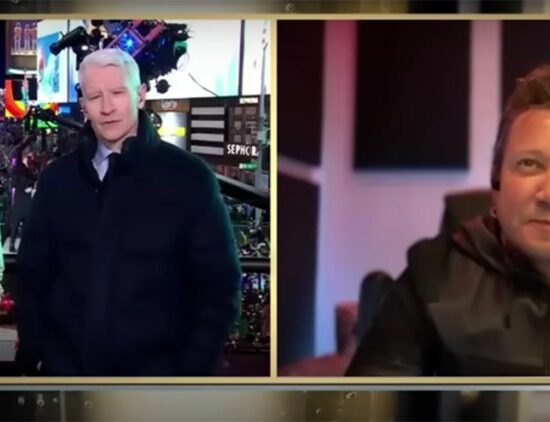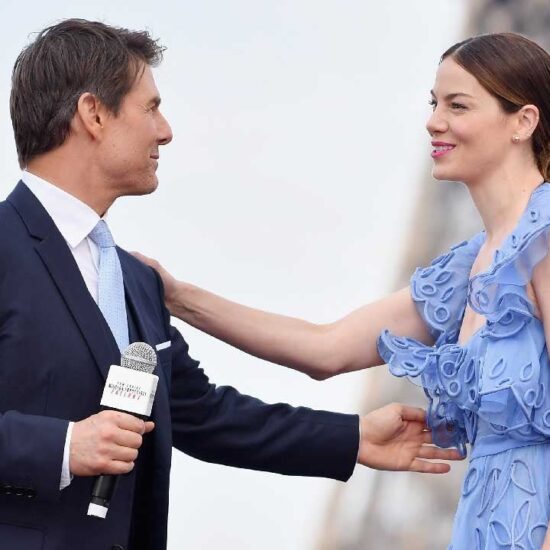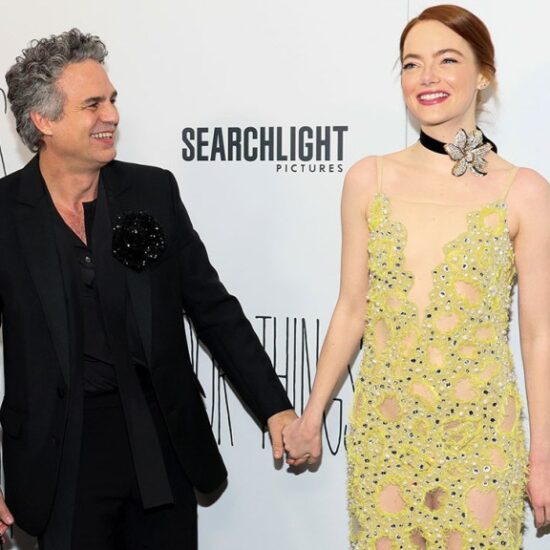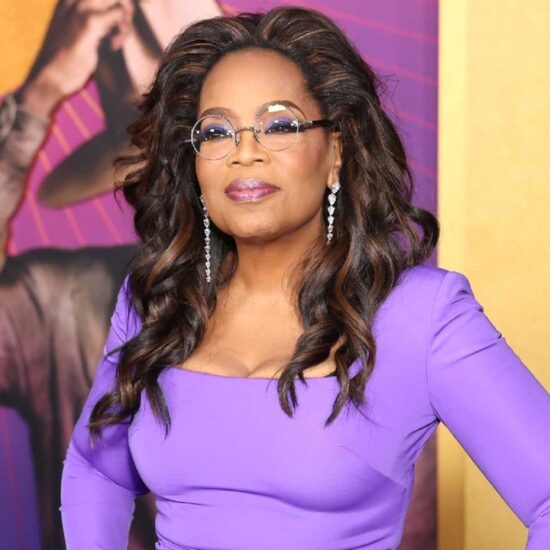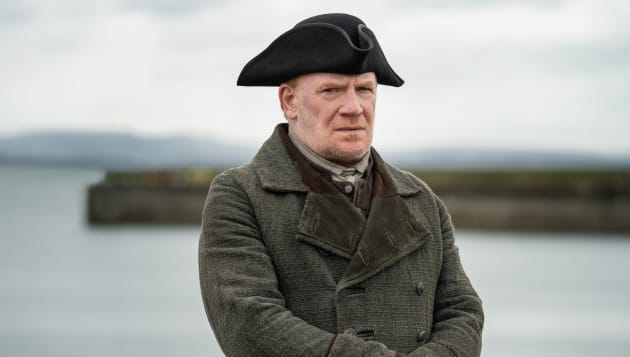
Tom Christie is alive. His quick wits saved him in much the same way they worked to free Claire Fraser, saving her life.
During a recent press day, we had the chance to speak with Mark Lewis Jones about Tom’s motivations and what it was like playing the enigmatic character who has fallen deeply in love with Claire.
He shared many great insights about the story and the complexities of Tom Christie. I hope you enjoy the conversation.
Tom Christie is a very complex man with a very strong moral code. How did that play into giving his life in exchange for Claire’s?
Yeah. It’s a big journey, isn’t it?
It is.
From where we first meet Tom to where we end up. I guess you do it bit by bit, and it’s a very slow reveal. Those scenes in Series Six are great fun to play, even though he comes across as a very unlikable character and nobody can warm to him, and he’s incredibly strict and pious and self-willed and stubborn and all that.
They’re actually great fun to play those scenes.
Oh, sure.
Because the thing that I really loved about them was that the writers had always put points of vulnerability in there, which of course, he tries to conceal, but if you look back at even the first time he meets Claire and when he reads the book Tom Jones, and the operation and fainting and screaming with pain, and trying to whip Malva, but his hand’s not working.
All that stuff was great to play, and the payoff, I guess, is that you get to that place of vulnerability, genuine vulnerability.
By the time we get to the beginning of [Outlander Season 7], you get the real Tom, the vulnerable Tom, the Tom that feels love, genuine love, and is able to sacrifice himself on behalf of another.
It’s almost like he was dragged kicking and screaming into this new place in his life where he’s open to that vulnerability.
Oh, entirely. This is all despite himself. He has no choice in the matter. He’s fought this tooth and nail — all his life probably, but certainly since he’s met Claire. He didn’t want to give in to any of this.
I think Tom saw his life as a single man trying to keep these two children in some kind of shape and spending most of his life reading the Bible and going to church and trying to make sure others did and keeping the community as a God-fearing community around him.
That didn’t work at all. The ghosts of his past come to revisit, and he finds himself on a journey with Claire as her protector. There’s a shift, isn’t there? There’s a real transformation, a huge transformation. We see the real Tom emerge by the time we get to the ship, and that reveal is the real Tom, but he’s fought this tooth and nail.
This is against his best wishes. I think he genuinely thinks that the best thing for him is to remain a servant of God, a God-fearing person, and he cannot do it. So for him to be, I guess, liberated from all of that is really kind of touching. The real Tom is a wonderful thing, really, and I guess it’s the thing he most feared.
His thoughts on Jamie and how he viewed him as a man were what brought him to Fraser’s Ridge in Outlander Season 6, and he’s now got this entirely different view of Claire. How does he view those two as a couple, and how he then fits into their life in that framework?
Well, his relationship with Jamie, as we know from the start, is antagonistic. Jamie seems to command all this respect. He has this natural ability around men. If he played a sport, he would be the natural captain, and these men feel such respect for him.
So I guess when he comes to Fraser’s Ridge for the first time after we’ve seen him and seen the antagonism between them, it’s no surprise, I guess, to Tom that he has this extraordinary wife. I think the thing that really throws Tom is for this man and woman to have an equal relationship. Tom’s never come across that.
He’s had difficult relationships where he’s had a relationship with a witch that he believes to be a real thing, and to see Jamie and Claire as completely in love but also equal to each other is an extraordinary thing. I don’t think he’s ever come across it.
So for Tom, that is impenetrable, and when he’s left alone with Claire, his feelings for her are beyond his control. In the end, he sacrifices himself so that they can be together, which is an extraordinary act of love, isn’t it?
We also need to talk about Outlander Season 7 Episode 4, when we discover he didn’t die, and then he runs into Claire, and they have this amazing conversation, the words from Tom of which are the title of the episode, “A Most Uncomfortable Woman.”
What was it like preparing for that conversation and showing this completely different side now of almost a joy-filled Tom? It’s so different. You transformed.
Yeah. He has transformed, and he’s gone through the fires of hell in order to transform, really. He’s been forged. He’s been forged into another person — the real Tom. The real Tom has emerged, but that moment when they bump into each other in the street in Windsor was great fun.
It’s just lovely to have all that real gentler side, the softer side. There’s not much fun in Tom Christie in Series Six. Certainly not from his point of view.
I mean, to see him screaming in the operation must be fun for other people, especially Jamie, but not for Tom himself. Tom doesn’t have any joy in his life really until we start to see him now. He doesn’t have any joy at all. It’s a joyless life, and it’s kind of designed to be such, but it doesn’t work.
It doesn’t work because he has a cold heart, or at least that’s how he presents himself. So having these lighter, more intimate, more vulnerable scenes to play is wonderful. It’s a totally different aspect of the same person.
And then we also find out that Tom is integral in some of Outlander’s puzzles, such as placing the obituary for their death, which surprised me.
He felt so keenly that people needed to know what happened to these wonderful people that he placed an obituary. What does that feel like to have such a spot in Outlander history?
I know. Oh, it’s wonderful. I’m so thrilled to be part of the whole Outlander family and story.
Tom doesn’t come into it until Series Six, but he is so integral to a big chunk of it, isn’t he, as the Christies are in general. Yeah, to place that obituary, it’s an extraordinary thing to do, isn’t it?
It is.
Yeah. He kind of tries to do, from the beginning, I think, Tom tries to do the right thing. For most of his time, he tries to do the right thing. Jamie brings out the worst in him, but he does try to do the right thing.
Building the church in Fraser’s Ridge is, for him, the right thing to do. It’s the correct thing to do, and to write that obituary, yeah, it’s an extraordinary thing. It’s an extraordinary act.
How do you imagine Tom Christie‘s life continues after this?
Well, he says himself that while she’s alive, he’ll never be free, or words to that effect. Certainly, that is an ongoing problem for him, his undying love for Claire. He can’t help it, but I would say, even though he’s kind of lost everything, he’s in a better place in a way.
The fact that he’s been able to locate these true feelings and be able to voice them has to have some positive effect on the rest of his life. Tom has been honest about what he really feels, and he’s also been able to reveal the dark bits of his history, so by being honest, I think he’s been liberated.
Well, thank you so much for talking with me today, Mark. I think he was a wonderful character, and I saw the nuances in the way that you portrayed him. Well into Season 6, there was always that hint that something was going to happen that was going to turn the tide. Oh, that’s great.
It was worth the journey.
Thank you.
To catch up on all the latest, check out our Outlander episode guide, and be sure to return here weekly for reviews after each new episode after airing on Starz on Fridays at 8/7c.
Carissa Pavlica is the managing editor and a staff writer and critic for TV Fanatic. She’s a member of the Critic’s Choice Association, enjoys mentoring writers, conversing with cats, and passionately discussing the nuances of television and film with anyone who will listen. Follow her on Twitter and email her here at TV Fanatic.







